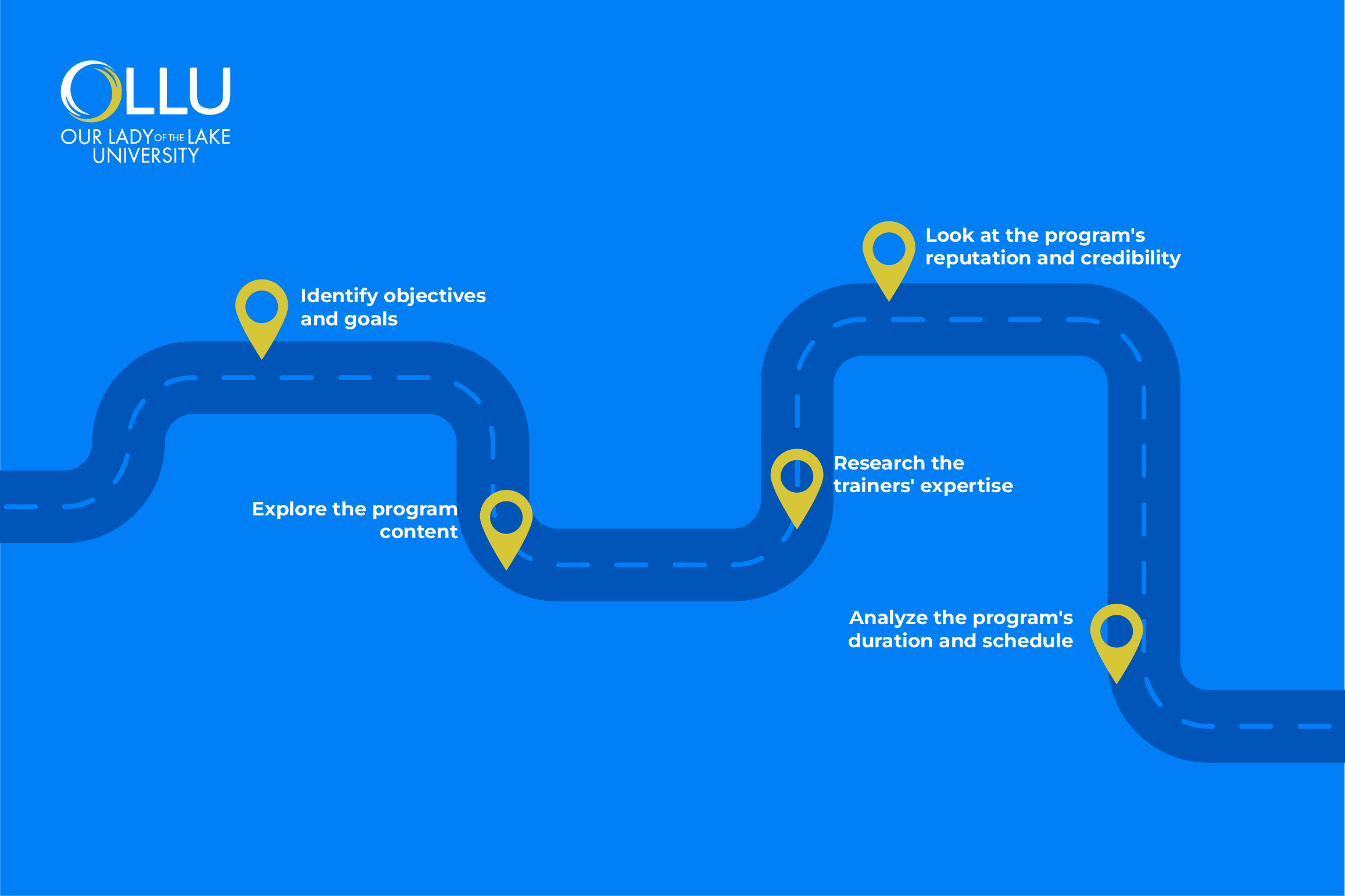Why Leadership Training Is Important: Building Strong Foundations for Success
Mar 12, 2024

At its core, leadership training equips aspiring and existing leaders with the essential skills to guide teams confidently and clearly. From enhancing decision-making abilities and communication skills to fostering strategic planning and adaptability, leadership training lays the foundation for personal growth and organizational success.
It's not just about molding individuals into leaders; it's about creating a collaborative, efficient, and innovative work environment where everyone is motivated to achieve their best. Keep reading to learn more about why leadership training is important!
What Is Leadership Training?
Leadership training is a program designed to enhance the skills and abilities of individuals to lead others effectively. It teaches people how to motivate, inspire, and guide a team towards achieving goals. The training often includes learning about communication, decision-making, problem-solving, and team management.
It's like a class that helps someone become a better captain of a ship, knowing not only how to steer but also how to encourage the crew to work together and face challenges. Leadership training is for anyone who wants to take on a role where they're responsible for guiding others, whether in a job, school, or any group activity.
Why Is Leadership Training Important?
Leadership training plays a vital role in both personal and organizational growth. For individuals, it builds confidence and skills to lead effectively, making them better team players and leaders. They learn to communicate clearly, solve problems creatively, and motivate those around them.
For organizations, having well-trained leaders improves teamwork, boosts productivity, and helps achieve goals more efficiently. With strong leaders, companies can adapt to changes faster, innovate, and stay ahead in their industry. Essentially, leadership training helps people and organizations grow stronger and more successful together.
Benefits of Leadership Training
From effective communication to strategic thinking, leadership training constitutes numerous benefits to enhance organizational performance. Here is why leadership training is important and what leadership qualities one can gain from it.
1. Enhanced Decision-Making Skills
Leadership training teaches people to analyze situations, weigh options, and make informed choices. It's like learning to navigate a map before a journey. This training helps individuals think clearly, consider the consequences of their actions, and choose the best path forward, leading to smarter and more effective decisions.
2. Effective Communication
Leadership training also teaches people how to share their ideas clearly and understand others' points of view. This training helps individuals learn the art of good conversation, making it easier for them to connect with and lead their team effectively.
3. Team Building
Team building is another skill leadership training helps reinforce. It shows people how to bring individuals together, highlight their strengths, and motivate them towards a common goal. Through this training, leaders learn to create a supportive environment where everyone feels valued and works well together, leading to successful and cohesive teams.
4. Strategic Thinking
Leadership training helps people learn to think ahead and make smart, long-term decisions. It's about solving problems before they happen and guiding a team to success over time. This training encourages careful planning and strategic thinking, ensuring leaders can lead their teams to achieve lasting success.
5. Time Management
Leadership training teaches individuals how to prioritize tasks, set goals, and allocate their time wisely. It's like learning to organize a busy schedule so that important things get done first. This training helps leaders juggle multiple responsibilities efficiently, ensuring they can lead their teams without missing deadlines or overlooking key tasks.
6. Productivity Boost
Leadership training equips individuals with the skills to motivate and inspire their teams, leading to a more engaged workforce. Fostering effective communication and problem-solving ensures that teams work more cohesively. This directly translates into increased productivity, as well-organized teams can achieve their goals more efficiently and with better results.
7. Adaptability and Flexibility
By learning to navigate unexpected situations and embrace change, individuals become more adaptable and flexible leaders. Leadership training equips them with the skills to adjust strategies quickly, adopt new ideas, and stay effective under pressure. This ability to swiftly adapt ensures they can lead their teams through any challenge with confidence.
8. Improved Organizational Performance
Top-tier organizational leadership leads to improved organizational performance. Leadership training can significantly boost an organization's performance by enhancing leaders' skills. It cultivates a strong leadership culture, resulting in improved team morale, higher productivity, and better decision-making. This domino effect strengthens the organization, making it more resilient, innovative, and competitive in its industry.
How to Choose a Leadership Training Program?

Choosing the right leadership training program is crucial for better outcomes. You must look out for experienced trainers, good reviews, and content that matches your goals.
Identify Objectives and Goals
To set clear leadership development goals, start by figuring out what skills you want to improve, like communication or decision-making. Think about where you want to be as a leader in the future. Write these goals down, make sure they're specific, and set deadlines to check your progress.
Program Content
When checking a leadership training program, look at what it teaches. Does it cover important topics like team management, problem-solving, and communication? Also, see if it matches your needs and goals. Ask about the trainers' experience and how the program measures success. This helps ensure it's the right fit for you.
Trainer Expertise
When evaluating trainers' qualifications, look at their experience: Have they led teams or projects successfully? Check their education and any special training they've completed. Also, see if they have good reviews or references from past trainees. It's important they have real-world leadership experience and a track record of teaching others effectively.
Reputation and Credibility
To check if a training provider is good, look for reviews from other people who have taken their courses. See if they have a history of happy customers and successful results. Also, check if they are recognized by professional organizations. This helps make sure they're trustworthy and their training is valuable.
Duration and Schedule
When looking at a leadership training program, it’s also a good idea to think about how long it lasts and when it happens. Make sure it fits into your schedule without causing stress. Some training might be short and intense, while others take longer but are less demanding each day. Pick one that suits your time and learning style.
Bottom Line
Leadership training helps people become better leaders by teaching them how to make good decisions, communicate well, and plan for the future. It's important for both personal growth and making organizations stronger. Investing in this training means building teams that can face challenges and succeed together.
Ready to take the next step? Explore executive leadership training as a part of OLLU's MBA program, or through the Organizational Leadership Minor here at Our Lady of the Lake University.
Frequently Asked Questions (FAQs):
How important is learning in leadership?
Learning is crucial in leadership as it fosters adaptability, enhances decision-making, and keeps leaders equipped with current strategies and skills.
Why is it important to teach leadership?
Teaching leadership is vital because it prepares individuals to inspire, guide, and positively influence others, fostering strong teams and organizational success.
Is leadership training effective?
Leadership training is effective when it's well-designed, tailored to the learners' needs, and includes practical, real-world applications, leading to improved leadership skills and organizational performance.
How do you develop good leadership training?
To develop good leadership training, identify clear objectives, incorporate experiential learning, leverage knowledgeable instructors, and ensure the content is relevant to the participants' roles and challenges.